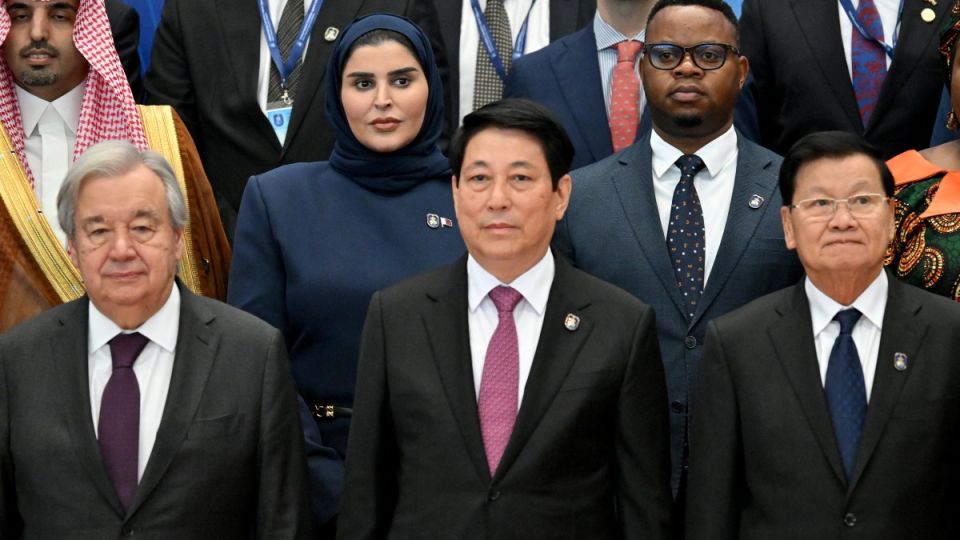October 27, 2025
HANOI – The United Nations Convention against Cybercrime (Hanoi Convention) represents a strategic and historic step that demonstrates the shared vision, responsibility and cooperation of the international community for a safe, trustworthy cyberspace, said Minister of Public Security Lương Tam Quang at the closing session of the signing ceremony and high-level conference in Hà Nội on Sunday.
With 72 signatories over the two-day conference, the treaty “establishes a solid legal foundation for international cooperation, reaffirming the value of multilateralism, equal dialogue and respect for national sovereignty to ensure that cyberspace truly serves peace, fairness and sustainable growth,” said the Vietnamese minister.
“Việt Nam firmly believes that the signing ceremony of the UN Convention against Cybercrime marks a historic milestone, ushering in a new era of global cooperation to safeguard peace, stability and sustainable development,” he said.
Consistent with Việt Nam’s priority on cybersecurity and its foreign policy, he reiterated the country’s commitment.
“Việt Nam considers cybersecurity and the fight against cybercrime a prerequisite for protecting digital sovereignty, privacy, human rights and trust in the digital society,” said the minister, stressing that the country commits to fully, seriously and responsibly fulfilling its obligations under the convention.
Việt Nam would also strengthen bilateral and multilateral cooperation with the convention’s member states in preventing and combating cybercrime.
Quang noted that the strong participation of numerous countries, organisations and individuals at the event in Hà Nội reflected the unity, responsibility and political will of the global community in the fight against cybercrime.
The convention’s adoption by consensus also highlighted the central role of the UN in promoting international cooperation to address global challenges, he said. It also reflected the trust and confidence that the UN and the international community placed in Việt Nam’s role, reputation, capacity and responsibility in ensuring cybersecurity for a safe, humane and sustainable cyberspace.
He called for intensifying cooperation for the effective implementation of the Hanoi Convention, guided by solidarity and strategic trust, shared responsibility and mutual support in experience, technology and resources, especially to assist developing countries.
Faouzia Mebarki, chairperson of the ad hoc committee for the convention, said that the event in Hà Nội concluded a four-year-long working process of the drafting committee.
“We can all congratulate ourselves on the results achieved thanks to the political commitment of the member states and the mobilisation of all other stakeholders,” she said at the closing session.
John Brandolino, Director for the Division for Treaty Affairs at the UN Office for Drugs and Crime (UNODC), noted that the past two days of the conference marked the culmination of a journey that began in 2019, when the UN General Assembly created the ad hoc committee to negotiate this new convention.
The message of the discussions throughout the event showed that the Hanoi Convention held the promise of a more secure and just future for all, both online and offline, said Brandolino, but he stressed that the signing ceremony was only the beginning of the journey to bring this treaty to life.
The document needs to be ratified by 40 signatories before it is expected to take effect in 2027. It remains open for signatures at the UN headquarters in New York until December 31, 2026.
“I would like to sincerely thank our host, the Government of Việt Nam. We are so grateful to the host also of the city of Hà Nội, and of course, the Ministry of Public Security and the Ministry of Foreign Affairs for their untiring efforts to make this opening for signature truly possible and truly unforgettable,” said the UNODC director.
Reaffirming the UNODC’s commitment to bring the Hanoi Convention into practice, Brandolino said the UN office would continue to promote ratification and implementation of the convention, promote multi-stakeholder cooperation, facilitate negotiations and protocols, and develop practical materials for effective implementation.


